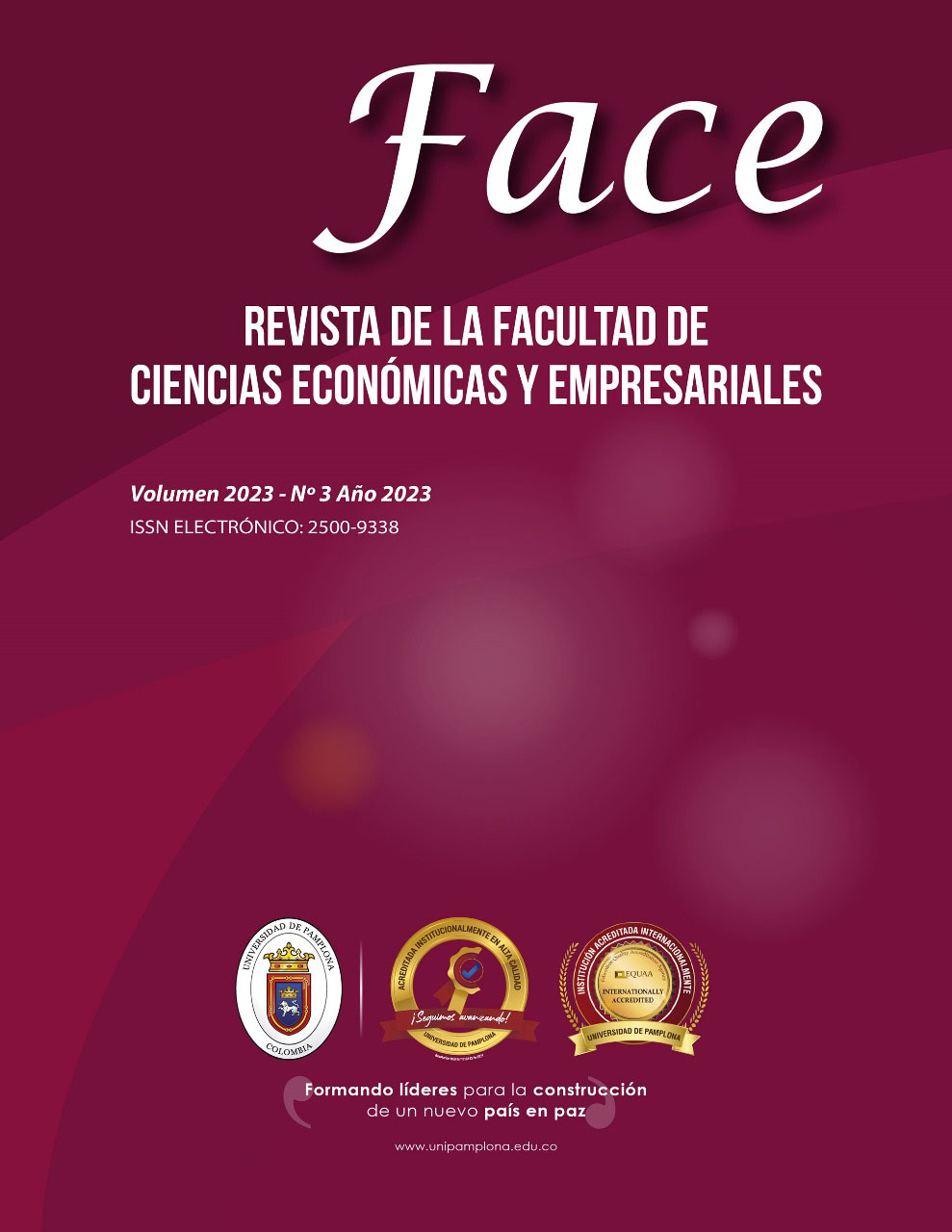Perceived quality in public and private hospitals during the pandemic.
DOI:
https://doi.org/10.24054/face.v23i3.2612Keywords:
Perceived quality, public and private hospitals, pandemicAbstract
State organizations and leaders continue to face the consequences caused by the Covid-19 pandemic, specifically, in
the health sector. In this sense, the great challenge faced by hospitals, both public and private, is to achieve the quality
of their service, with the aim of generating satisfaction in their users. According to the above, the objective of this work
is to analyze the perceived quality in public and private hospitals in the La Laguna Metropolitan Area (ZML) during the
pandemic caused by Covid-19. The methodology is based on the design of an instrument, which allowed evaluating
various areas of care. Finally, the results indicate that the quality of the doctors obtained the best evaluations, however,
the quality of the pharmacy was the worst evaluated.
Downloads
References
Aspajo, I. (2021). Modelo de mejora de la calidad de servicios de salud y gestión hospitalaria basado en el EFQM y diagrama de Ishikawa, en el hospital regional de Moquegua nivel II-2. Tesis doctoral. Universidad Nacional deSan Agustín de Arequipa, Perú.
Chang, C.-W., Tseng, T.-H. & Woodside, A. (2013). Configural algorithms of patient satisfaction, participation in diagnostics, and treatment decisions' influences on hospital loyalty. Journal of Services Marketing, 27 (2), 91-103. https://doi.org/10.1108/08876041311309225
Delice, P. A., Vargas, D. & Donoso, J. (2019). Encuesta de percepción de violencia en Guerrero 2018: Validación y resultados. En D. Vargas(Coord.), Aspectos metodológicos para la investigación social: Modelos de ecuaciones estructurales. Ciudad de México: UNAM.
Donabedian, A. (2005). Evaluating the Quality of Medical Care. The Milbank Quarterly, 83 (4),
-729. https://doi.org/10.1111/j.1468-0009.2005.00397.x
Fatima, T., Malik, S. A. & Shabbir, A. (2018). Hospital healthcare service quality, patient satisfaction, and loyalty: An investigation in context of
private healthcare systems. InternationalJournal of Quality & Reliability Management, 35 (6), 1195-1214.https://doi.org/10.1108/IJQRM-02-2017-0031
Hair J. F., Hult, G. T. M., Ringle, C. M. & Sarstedt, M. (2014). A primer on partial least squares structural equation modeling (PLS-SEM). Thousand Oaks: Sage Publications, Inc.
Illum, S. F., Ivanov, S. H. & Liang, Y. (2010). Using virtual communities in tourism research. Tourism Management, 31, 335–340.https://doi.org/10.1016/j.tourman.2009.03.012
Jaráiz, E., Lagares, N. & Pereira, M. (2013). Los componentes de la satisfacción de lospacientes y su utilidad para la gestión
hospitalaria. Revista Española De Ciencia Política, 32, 161–181. https://recyt.fecyt.es/index.php/recp/article/view/37592
Manzoor, F., Wei, L., Hussain, A., Asif, M. & Shah, S. (2019). Patient Satisfaction with Health Care Services; An Application of Physician's Behavior as a Moderator. International Journal of Environmental Research and Public Health, 16 (18), 3318. https://doi.org/10.3390/ijerph16183318
Meesala, A. & Paul, J. (2018). Service quality, consumer satisfaction and loyalty in hospitals: Thinking for the future. Journal of Retailing and Consumer Services, 40, 261-269. https://doi.org/10.1016/j.jretconser.2016.10.011
Numpaque-Pacabaque, A. & Rocha-Buelvas, A. (2016). Modelos SERVQUAL & SERVQHOS para la evaluación de calidad de los servicios
de salud. Revista de la Facultad de Medicina, 64 (4), 715-720. https://doi.org/10.15446/revfacmed.v64n4.54839
Nunnally, J. C. & Bernstein, I. H. (1994). Psychometric Theory. New York: McGraw-Hill. Parasuraman, A., Zeithaml, V. & Berry, L. (2002).
SERVQUAL: A multiple-item scale for measuring consumer perceptions of service quality. Retailing: Critical Concepts, 64(1), 140.
Ringle, C. M., Wende, S. & Becker, J. M. (2015). SmartPLS 3. Boenningstedt: SmartPLS GmbH. http://www.smartpls.com
Ruiz, G. A., Aguilera, A., Juárez, B. & Amarillas, V. A. (2021). Técnicas de análisis cuantitativo para economía y mercadotecnia. Ciudad de México: Ediciones de Laurel y Universidad Autónoma de Coahuila.
Ruiz, G. A., Juárez, B. & Aguilera, F. (2021). Mercadotecnia social en la salud en tiempos de COVID-19. Revista de la Facultad de Ciencias Económicas y Empresariales, 21 (2), 22-33. https://doi.org/10.24054/01204211.v2.n2.2021.4652
Santos-Jaén, J. M., Valls Martínez, M. del C., Palacios-Manzano, M. & Grasso, M. S. (2022). Analysis of Patient Satisfaction through the Effect of
Healthcare Spending on Waiting Times for Consultations and Operations. Healthcare, 10 (7), 1229. https://doi.org/10.3390/healthcare10071229
Silberman, M., Granados, J. A., Delgado, I. & López, V. (2014). Calidad de la atención en salud: el modelo de Avedis Donabedian. En López, S., Vértiz, J., Jarillo, E., Garrido, F. & Villa, B. El Sistema Integral de Calidad en Salud. Una mirada crítica. Cuernavaca: Instituto Nacional de Salud Pública.
Vera, J. & Trujillo, A. (2018). El efecto de la calidad del servicio en la satisfacción del derechohabiente en instituciones públicas de salud en México. Contaduría y Administración, 63 (2), 1-22. http://dx.doi.org/10.1016/j.cya.2016.07.003
Published
How to Cite
Issue
Section
License
Copyright (c) 2023 FACE: Revista de la Facultad de Ciencias Económicas y Empresariales

This work is licensed under a Creative Commons Attribution-NonCommercial-ShareAlike 4.0 International License.





